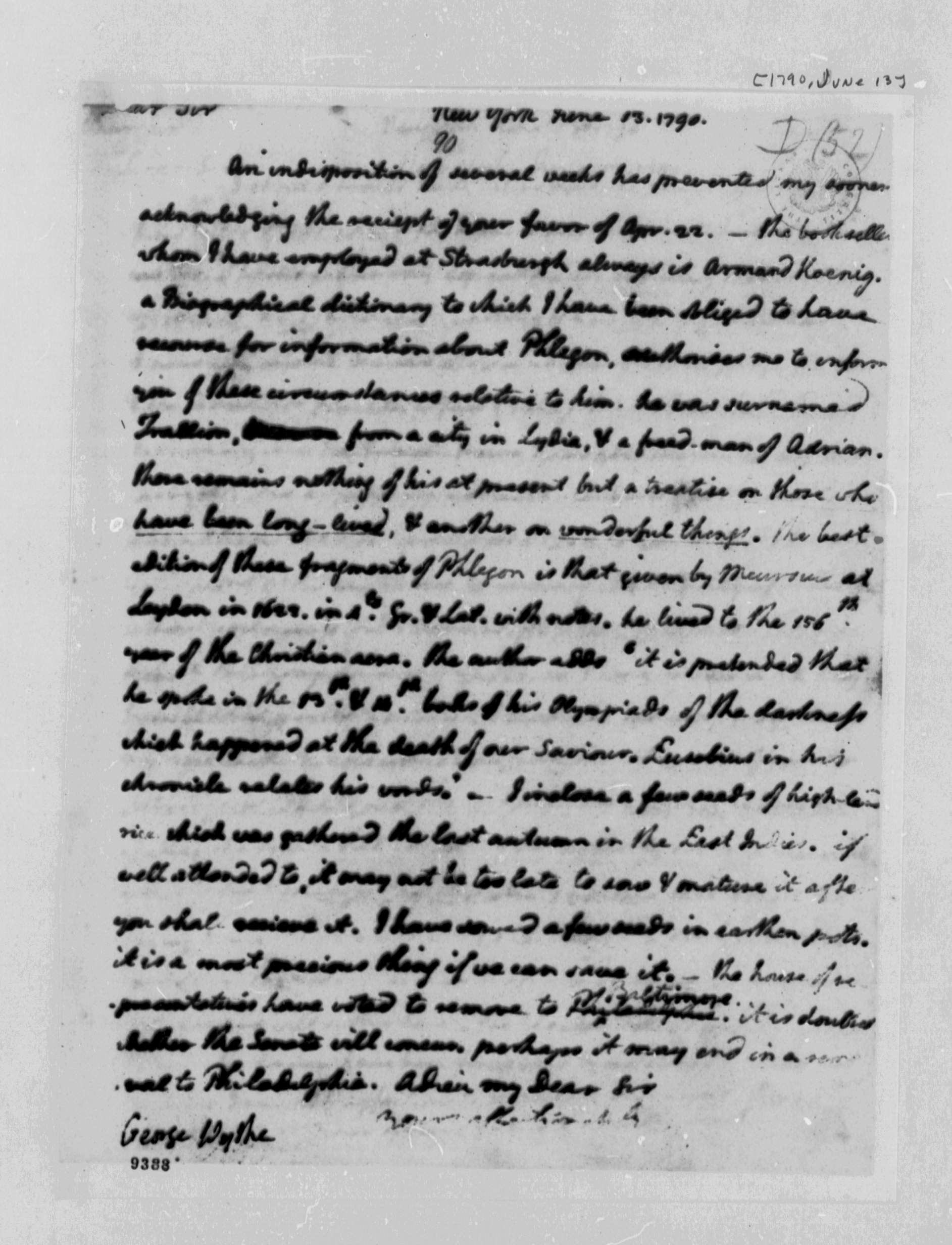Thomas Jefferson to Wythe, 13 June 1790
Thomas Jefferson writes in response to Wythe's letter from April 22 where Wythe asked about where he could obtain the writings of Phlegon. Jefferson tells him the name of a bookseller he has used in the past and provides some extra information about Phlegon he has discovered. He also gives Wythe some seeds of high-land rice and mentions that the House of Representatives voted to move to Baltimore but the Senate has not made a decision yet.

"Thomas Jefferson to Wythe, 13 June 1790." Image from the Library of Congress, The Thomas Jefferson Papers.
Letter text
New York June 13. 1790.
Dear Sir
An indisposition of several weeks has prevented my sooner acknowledging the receipt of your favor of Apr. 22. – the bookseller whom I have employed at Strasburgh always is Armand Koenig. A Biographical dictionary to which I have been obliged to have recourse for information about Phlegon, authorises me to inform you of these circumstances relative to him. he was surnamed Trallion, from a city in Lydia, & a freed-man of Adrian. there remains nothing of his at present but a treatise on those who have been long-lived, & another on wonderful things. the best edition of these fragments of Phlegon is that given by Meursius at Leyden in 1622. in 4to. Gr. & Lat. with notes. he lived to the 156th year of the Christian era. the author adds 'it is pretended that he spoke in the 13th. & 14th. books of his Olympiads of the darkness which happened at the death of our Saviour. Eusebius in his chronicle relates his words.' – I inclose a few seeds of high-land rice which was gathered the last autumn in the East Indies. if well attended to, it may not be too late to sow & mature it after you shall receive it. I have sowed a few seeds in earthen pots. it is a most precious thing if we can save it. – the house of representatives have voted to remove to
PhiladelphiaBaltimore. it is doubted whether the Senate will concur. perhaps it may end in a removal to Philadelphia. Adieu my Dear Siryours affectionately